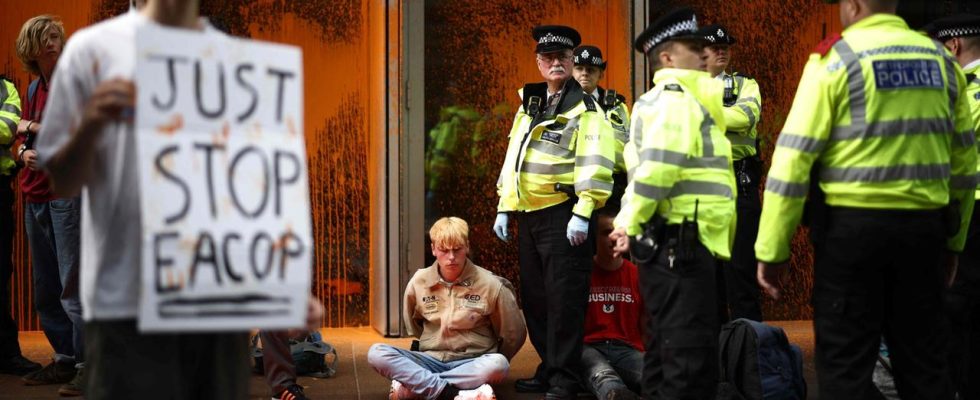The police and judiciary in Great Britain can now take even tougher action against unwelcome protests. Corresponding laws have come into force. Disrupting traffic can result in years in prison. Critics are alarmed.
In Great Britain, further parts of a controversial law have come into force, which make certain methods used in demonstrations subject to heavy penalties. The government wants to take action against environmental activists, who repeatedly paralyze traffic with their protests. Police officers can now ask demonstrators to clear the street.
Imprisonment for impeding important traffic facilities is up to six months. Anyone who builds or stays in a tunnel to cause serious disruption can be sentenced to up to three years in prison. In addition, it is now illegal to obstruct the construction or maintenance of future transport networks.
According to the Home Office, protests at construction sites, for example, place a financial burden on taxpayers. Digging makeshift tunnels has been used for many years as a form of protest against projects such as the construction of a high-speed rail link, as well as by groups such as Extinction Rebellion and Just Stop Oil. deployed.
Critics warn of authoritarian tendencies
The conservative government has committed itself to freedom of demonstration, but has sharply criticized radical forms of protest. “Hard working people want to go about their daily lives without being disturbed by a selfish minority,” said Home Secretary Suella Braverman. “The public is fed up with having their lives disrupted by selfish protesters. The chaos we saw on our streets was scandalous.”
Critics, on the other hand, warn of authoritarian tendencies that the tightening of the law endangers the right to demonstrate. In recent months, the government has severely restricted the rights of protesters, such as walking slowly and being glued or chained.
Police officers have the right to arrest anyone who they believe might disrupt public order. Officials first exercised this right on the fringes of King Charles III’s coronation. used – and were sharply criticized for it. Despite the tightened measures, environmental groups have continued their actions.

